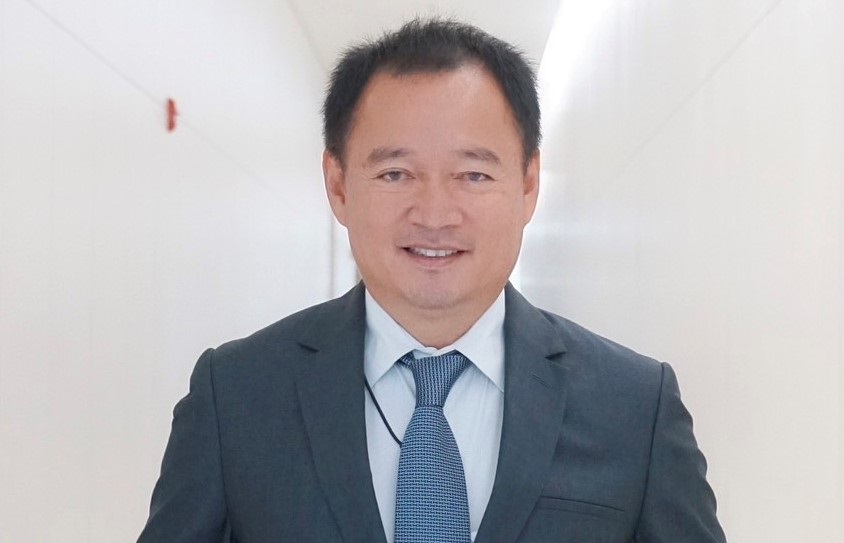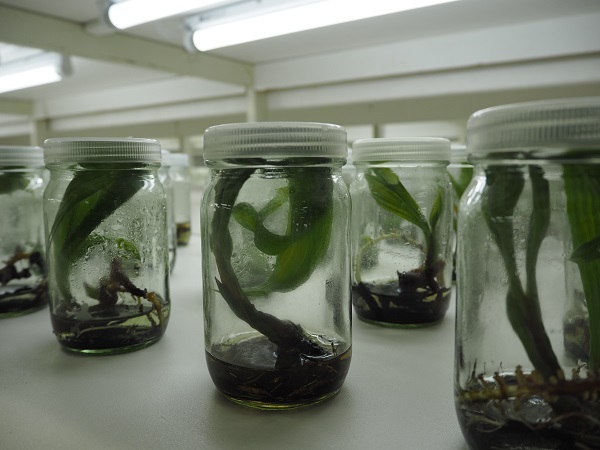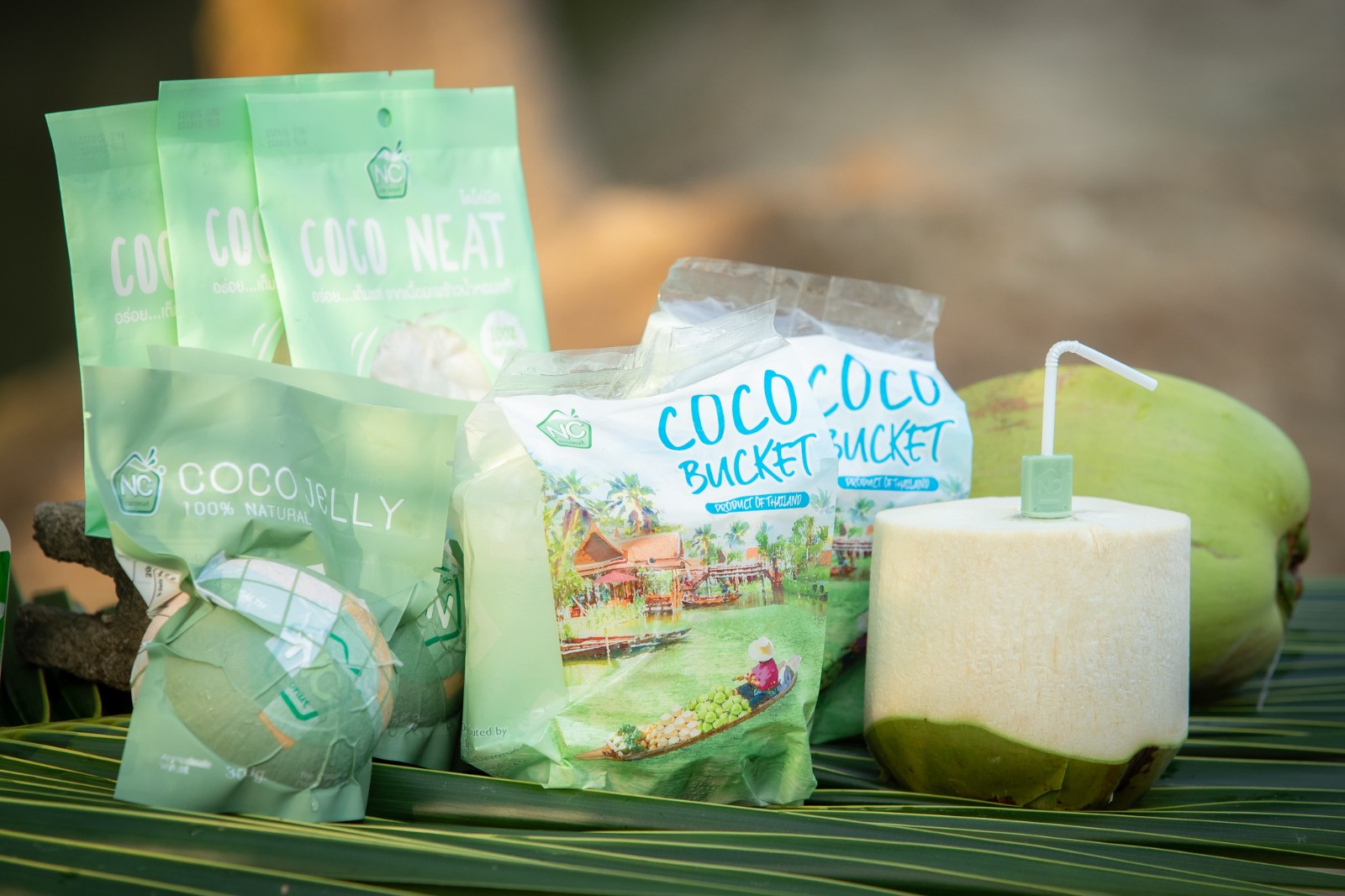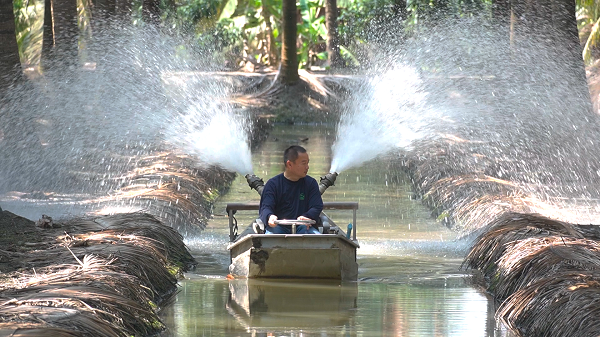NC Coconut Co. Ltd, a leading global exporter of aromatic coconut water, is also a successful Bio-Circular-Green Economic (BCG) role model in Thailand. Besides serving as a BCG site, the company functions as a learning centre for other enterprises and organisations that wish to learn how to apply the practical BCG model in their own operations and processes.
Narongsak Chuensuchon, NC Coconut managing director, established a coconut grove and processing plant in 1996 at Damnernsaduak, Ratchaburi, which has become famous in Thailand for fine-tasting and aromatic coconut water. From a small grove, Narongsak grew the plantation to a total of 2,400 acres with a production capability of 80,000 to 1 million coconuts per day.
Rising demand for coconut water and coconut flesh from global F&B producers and consumers drove NC Coconut to transform itself from a fresh coconut producer to an industrial supplier and exporter. Together with his business partners, Narongsak invested USD2.6 million to expand operations into coconut processing and export. He put a lot of effort into innovating on technologies and creating quality products.

Narongsak Chuensuchon, NC Coconut managing director
NC Coconut to date has secured more than 20 world-class food certificates, including Global GAP, Codex GHP/HACCP, HALAL, BRC and USDA organic. The company exports to China, which accounts for 70 percent of its market, and the rest going to the US, Hong Kong, Singapore and the Middle East.
Driven by the company principle of Good Quality Good Health, it stresses premium quality and value-added products. Its aromatic coconut products boast a natural sweet flavour with minerals and nutrients. These can also be used in medicines, health tonics and beauty products.
Ready-to-eat 100% natural products are marketed under the Nai Namhom brand and comprises aromatic coconut water, coconut jelly and coconut pudding. The NC Coconut brand consistsof Coco Trimmed or coconut in a diamond shape, CoCo jelly and CoCo Neat.

NC Coconut collaborated with the Naresuan University for the aromatic coconut tissue culture project involving short coconut palm tree.
Implementing the BCG model
NC Coconut collaborates with universities, research facilities and government agencies for its R&D projects. With the BCG model, the company adopts bioeconomy in its processes, utilising technologies to produce renewable resources and develop value-added and cost-effective products. It has cooperated with the Faculty of Agriculture, Natural Resources and Environment of the Naresuan University to develop aromatic coconut tissue culture. For example, the short coconut palm tree, which is native to Thailand, has a natural aromatic and sweet taste and is registered as a Geographical Indication (GI) and patent.
The Coco Bucket is another successful product designed to maintain coconut freshness for up to three months, ensuring its safety even for exporting. The sealed packaging which comes with a “coco straw” also gives consumers the experience of drinking straight from a coconut. For all these, the Coco Bucket was awarded honourable mention at the Food and Beverage Innovation Competition during the Healthy Food Products 2021 in Food ingredients Asia (FiA).

Award winning packaging with straw allows consumers to mimic drinking coconut water from the shell. The same packaging extends product shelf life up to three months.
For circularity, NC Coconut looked into improving its waste recycling system and implemented a zero-waste project that involved a 9.5MW biomass power plant that recycles 30 tons to 50 tons of coconut shells per day into biomass fuel, cat litter and organic fertiliser for a most efficient use of resources.
The company’s green economy initiatives focus on providing healthy and safe products to its customers using innovative yet environment-friendly technologies to balance the economy, society and the environment toward achieving sustainable development. Narongsak encourages organic farming, utilising microorganisms to improve soil and increase productivity while ensuring the health and safety of both farmers and consumers.
NC Coconut also implemented innovation in watering the grove, which results in increased productivity, reduced time spent in watering and labor cost savings. These have led to greater income and cost efficiency and environmental sustainability. With organic coconut being a high-value and premium product in the global market, the income of Narongsak’s 100 contract farmers also grew by about 40%.

Watering the grove with this boat resulted in increased productivity and reduced time spent in watering.
Sustainability enhanced
The BCG model allows businesses to explore new opportunities, enhance their competitiveness and generate returns as they meet their global sustainability goals, according to Narongsak.
“The economy can grow in harmony with society and the environment in a sustainable way,” he added. With “Success driven by Passion, Dedication and the Blessing of Nature” as his guiding principle in business, Narongsak sets clear goals to improve product quality and productivity. He recognises the importance of sustained process enhancements as reflected in the company obtaining more than 20 certificates to date.
The company develops its human resources, recruiting qualified managers and investing in training programmes for the staff to make sure they understand and align with organisation policies and directions.
To support the growing business and sales, NC Coconut also started implementing ERP. Besides real-time data collection and analysis, ERP has enabled the company to reinforce all staff work in a more systematic way. With it, Narongsak is also able to decentralise management through ERP monitoring and face-to-face meeting as well as ensure staff members are able to have work and life balance.
From its roots as a local farmer, NC Coconut has grown to become a BCG role model recognised by the government. From an OEM, it has become a global exporter with its own brand. Among its many awards are the Governance Award Best Consumer Treatment of the Year 2022 and the Person of the Year in the Business Sector of 2021 in the Food and Beverage Business Sector.
NC Coconut aims to promote its own brand and deliver healthy food products to new markets, especially the Middle East. The company is innovating on new technologies and process quality improvements to meet customer expectations as well as to sustain its zero waste efforts in alignment with the BCG model. Toward these goals, the company is keen to collaborate with business partners and together reach new heights. - NUCHARAT SIRIPRAPAWAN
Sources:
http://www.nccoconut.co.th/about/?fbclid=IwAR1uNtU4s-FHiaZen2svK3TOxphxDc-J_4t4E2BwRruwAEGZztga7iYWbEM#
https://www.setsustainability.com/libraries/1031/item/-esg-bcg-














